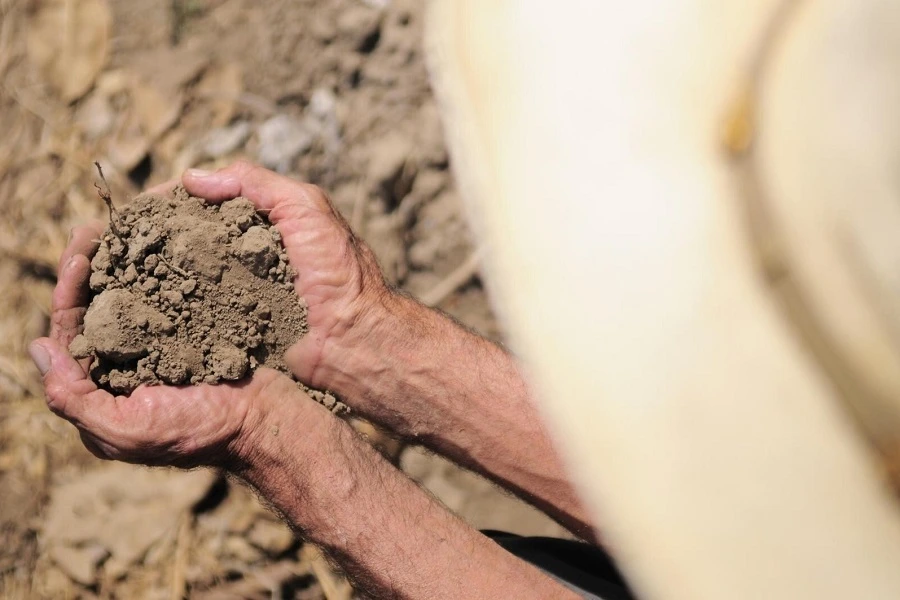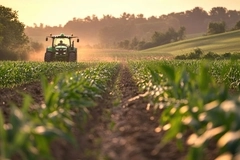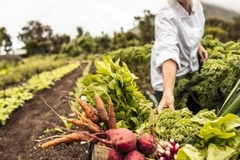PepsiCo revamps climate resilience tool to future-proof global supply chains
Key takeaways
- PepsiCo and its partners have updated the open access Climate Resilience Platform to help agricultural stakeholders mitigate climate risks through regenerative practices.
- The platform transforms climate research into actionable insights, allowing users to anticipate yield risks, identify investment opportunities, and strengthen global food supply chains.
- The expanded tool now includes more crops and countries, with new partners like Olam Agri and Bonsucro joining to advance industry-wide climate resilience.

PepsiCo has partnered with the Alliance of Bioversity International and the International Center for Tropical Agriculture to update its Climate Resilience Platform (CRP). The open access tool helps agricultural stakeholders predict yield risks, assess climate impacts, and expand regenerative agriculture adoption.
The move advances the F&B leader’s efforts to promote regenerative agriculture practices and increase the resilience of the agricultural supply chain against climate change shocks.
The CRP platform helps users share agrarian research to bring “scientific rigor” to regenerative agriculture, aiming to speed up the assessment phase and focus on funding actions to tackle climate change impact.
The Foundation for Food & Agriculture Research has contributed US$1 million in recognition of the revamped “CRP 2.0” platform’s potential for greater impact, says PepsiCo.
The FMCG giant’s support for democratizing access to climate resilience tools like CRP 2.0 helps “translate science into actionable insights,” says Margaret Henry, PepsiCo’s VP of Sustainable and Regenerative Agriculture.
It aims to help food and agriculture system stakeholders make more informed decisions, strengthen supply chains, and accelerate the shift to regenerative agriculture.
“This is about helping create measurable impact from healthier soils to support more resilient communities,” Henry adds.
Anticipating yield risks
The CRP tool was initially developed with PepsiCo’s support in 2023. It translates climate research into “actionable insights” for agricultural professionals, allowing them to predict yield risks and implement targeted interventions.
While similar tools exist, PepsiCo highlights that they are usually restricted to proprietary analyses that “discourage collaborative action” and may charge high consultancy fees.
The updated CRP 2.0 tool offers benefits such as quantifying climate risk exposure and business opportunities, such as investment requirements and projected yield improvements.
It also provides improved data and tools to promote collaboration between organizations at the landscape level.
The platform has added two new crops and six countries this year, with new parties joining to broaden the platform’s reach further. It also allows engagement with international agri-climate experts to enhance data accuracy and relevance, says PepsiCo.
 CRP 2.0 translates soil and climate data into actionable insights for farmers.
CRP 2.0 translates soil and climate data into actionable insights for farmers.
Driving industry-wide climate action
This update coincides with onboarding new organizations, signaling growing momentum for “industry-wide climate action.”
Olam Agri and Bonsucro are integrating CRP into their operations and providing funds and data to the platform. The sponsors include the ISEAL Innovation Fund (funded by the Swiss State Secretariat for Economic Affairs, the UK Department for International Development, and the Bonsucro Impact Fund.
Olam Agri will help expand CRP’s crop coverage across key origins, and make their contributions open access to empower stakeholders across these supply chains to accelerate climate adaptation and strengthen resilience.
“Climate change is one of the greatest challenges facing agriculture, but also an opportunity to innovate for resilience. By contributing to the Climate Resilience Platform, we are enabling stakeholders across the agriculture and food system to anticipate risks, make informed investment decisions, and adopt regenerative practices,” says Laurence Jassogne, head of Nature and Climate Solutions at Olam Agri.
“Our collaboration will help extend the reach of this open access tool to key crops such as rice and cotton, helping create long-term value for supply chains and secure livelihoods for farmers in some of the most climate-vulnerable regions.”
Last week, PepsiCo partnered with Soil Capital to scale regenerative agriculture in the UK, France, and Belgium to strengthen the supply chains of brands like Lays and Walkers. The company aims to adopt regenerative practices on ten million acres by 2030.


















